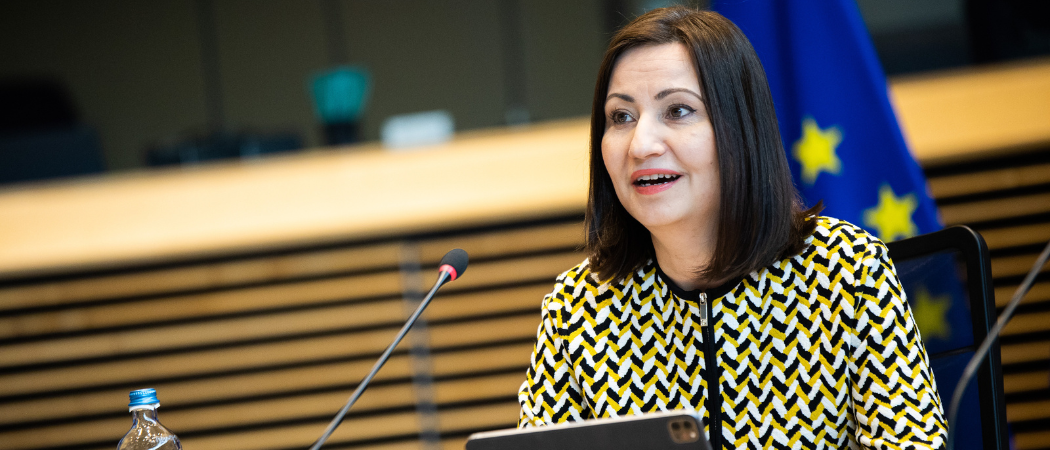Iliana Ivanova advises against unilateral termination of Israeli participation in Horizon grants

EU research and innovation commissioner Iliana Ivanova. Photo credits: Bogdan Hoyaux / European Union
The European Commission has warned universities and researchers that terminating Horizon Europe projects with Israeli counterparts on the basis of their nationality alone would be considered as discrimination, after several institutions said they were to suspend EU-funded research collaborations with partners in Israel.
“Termination solely on the basis of nationality would be improper and would amount to discrimination prohibited under the Association Agreement [with Israel], EU research and innovation commissioner Iliana Ivanova said in a reply to a letter by Flemish universities published earlier this month.
Ivanova warned that “any termination request would need to be issued in accordance with the terms and conditions of the relevant grant agreement.”
The letter follows on from announcements by several higher education institutions across Europe that they were suspending research ties with Israel over its military campaign in Gaza.
The University of Granada decided to stop working with Israeli partners in five Horizon Europe and Horizon 2020 projects. An association of Spanish universities said it was committed to reviewing and, where appropriate, suspending collaboration agreements with Israeli universities and research centress “that have not demonstrated a firm commitment to peace and adherence to international humanitarian law.”
Last month, the academic council of the Free University of Brussels (ULB) announced it would “suspend all agreements and institutional research projects involving an Israeli university” until universities in Israel made a “clear commitment” to abide by a recent International Court of Justice order against Israel’s assault on Rafah.
The ULB council had asked for clear recommendations and instructions on how to proceed with Horizon Europe projects that involve partners from Israel, so they can better assess if Israeli partners comply with Horizon Europe ethical standards.
The council pointed to Article 14 of the Horizon Europe grant agreement, which stipulates that research projects “must be carried out in line with the highest ethical standards and the applicable EU, international and national law on ethical principles”. Project partners are expected to “commit to and ensure the respect of basic EU values (such as respect for human dignity, freedom, democracy, equality, the rule of law and human rights, including the rights of minorities)”.
Termination request
However, Ivanova says Israeli entities are eligible to participate in Horizon Europe grants under the same terms and conditions as institutions based in EU member states. “Moreover, Israeli entities’ participation in Horizon Europe projects is regulated by guidelines “related to entities based in occupied territories since 1967 and the terms and conditions of each grant agreement concluded by consortia involving Israeli entities,” Ivanova said.
It is not immediately clear if universities that have already terminated or suspended the access of Israeli researchers in Horizon grants will be investigated for discrimination.
Ivanova said the granting authority – in this case the European Commission – will assess each termination request. “On the basis of this assessment, the granting authority will decide on the possible legal and financial consequences of the termination such as a grant reduction, which would require a formal contradictory procedure.”
In a scathing letter earlier this month, German MEP Christian Ehler, the European Parliament’s co-rapporteur on Horizon Europe, asked the Commission to defend Israeli participation in the EU research and innovation programme.





 A unique international forum for public research organisations and companies to connect their external engagement with strategic interests around their R&D system.
A unique international forum for public research organisations and companies to connect their external engagement with strategic interests around their R&D system.